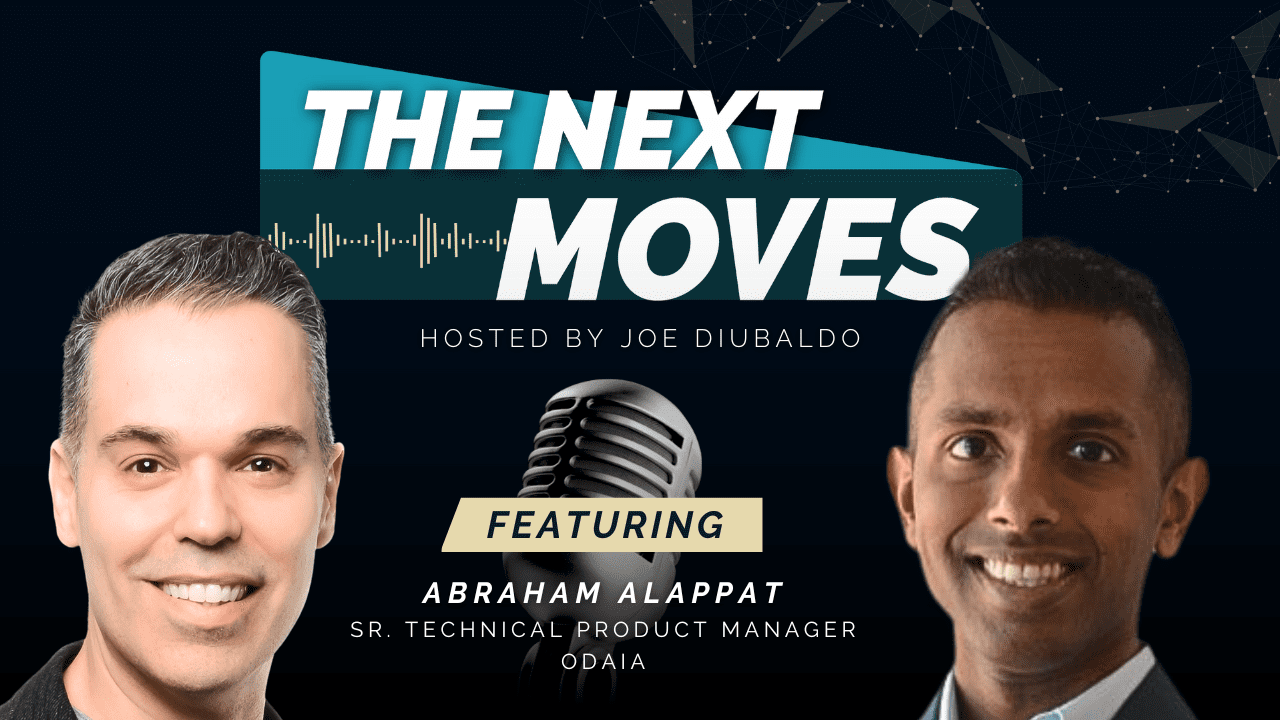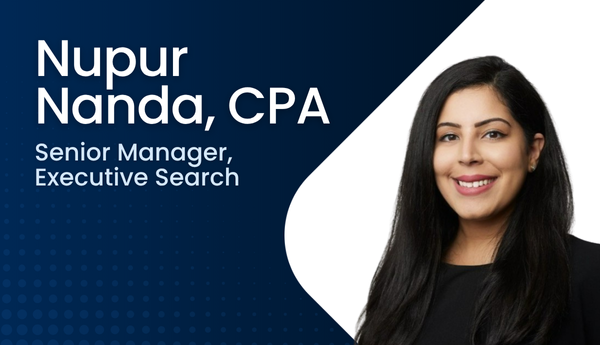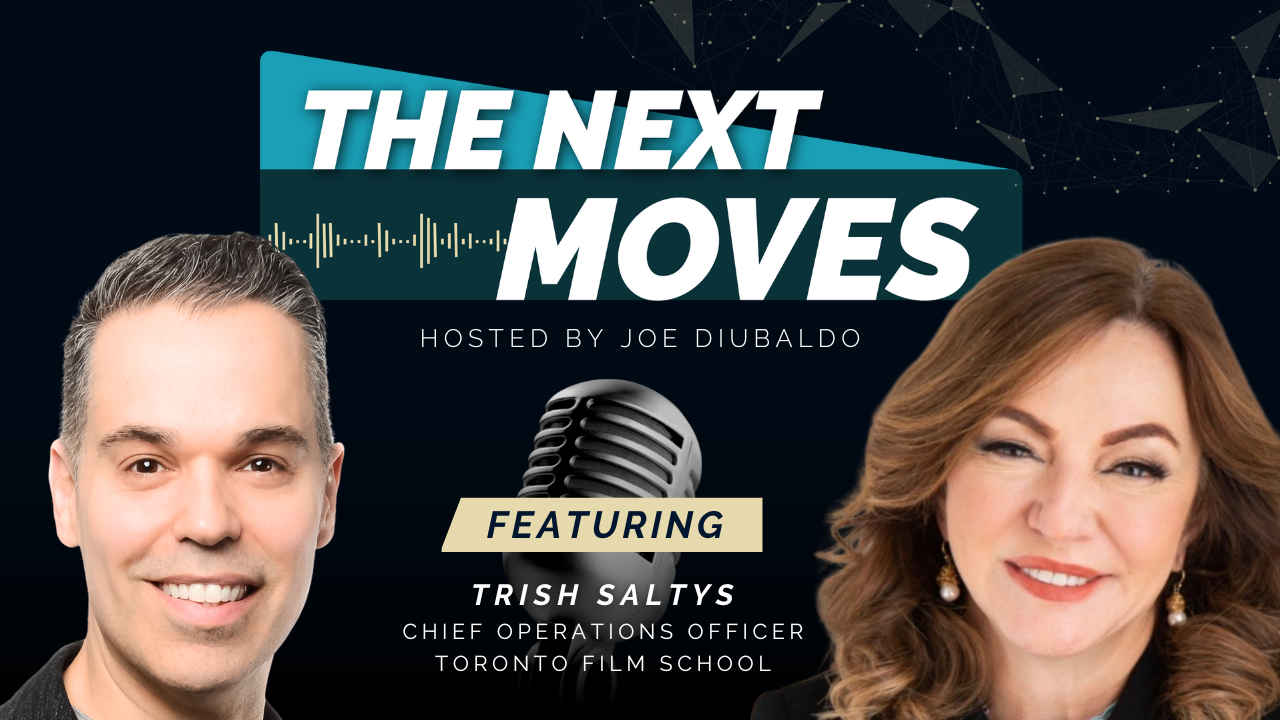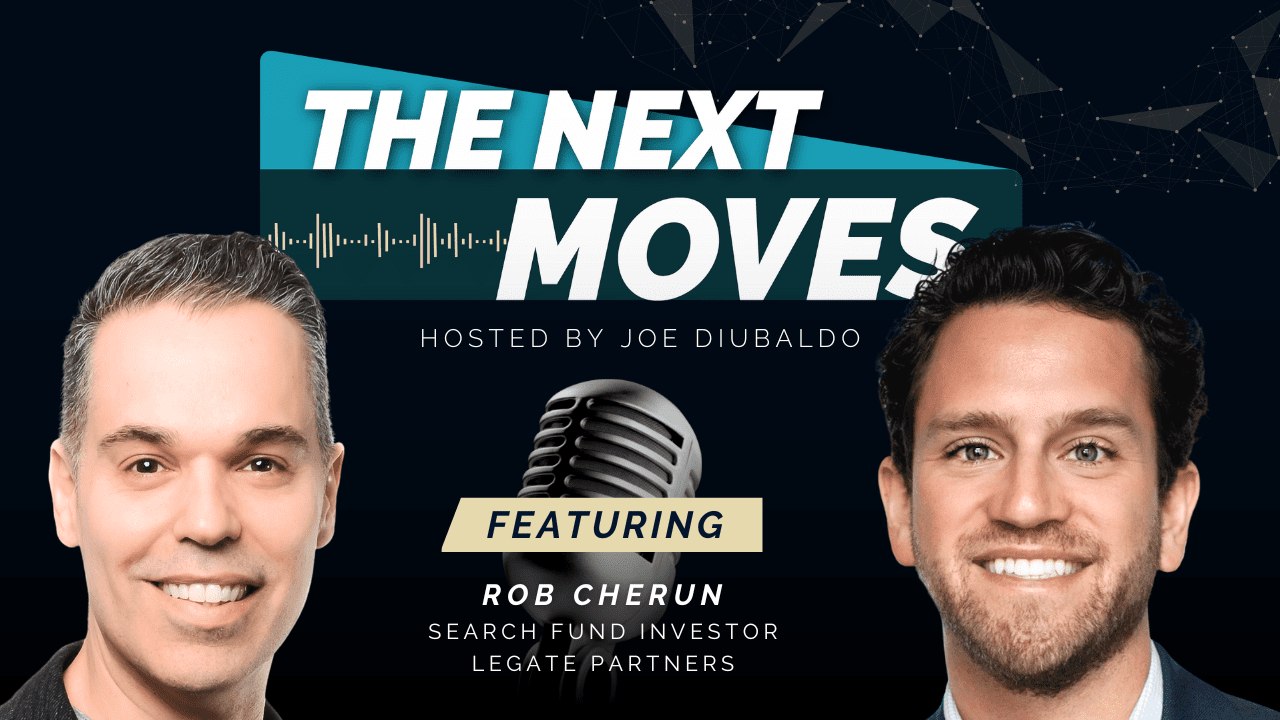Prefer to listen? Check out the podcast:
In a recent conversation between Joe Diubaldo, Founder & CEO of Clarity Recruitment, and Abe Alappat, Senior Technical Product Manager at Odaia, the potential for AI across various industries and functions — specifically venture capital, recruitment and design – was put under the microscope.
Abe Alappat’s journey into the world of AI-driven innovation is anything but ordinary. He’s charted a unique path from investment banking to the tech-heavy trenches of venture capital and product management, all the while shaping the role of artificial intelligence in areas as diverse as startup investing, recruitment, and enterprise software.
At Georgian, a venture capital firm with a focus on AI, Abe crafted a visionary system that went beyond traditional investment methods. For years, venture capitalists had relied on intuition and networks to identify promising startups. But Abe saw a different way. With his background in machine learning, he developed an internal quant investment engine, a system that used data and machine learning to filter and prioritize a vast sea of startups, narrowing down the thousands of potential investments to a few promising gems. This funnel optimization approach wasn’t just innovative—it was effective, yielding a higher success rate for Georgian’s investments and setting a new standard that other firms soon began to emulate. The AI-fueled engine didn’t just prioritize companies; it redefined what success in venture capital could look like.
This approach extended into recruitment as well. Abe’s understanding of funnels—the journey from leads to results—applied seamlessly to hiring, where the first challenge is filtering through resumes and finding the right candidates. Here, he introduced the concept of generative AI and retrieval-augmented generation (RAG) agents. These agents, he explained, could operate like seasoned hiring managers. They could generate tailored, context-rich questions and conduct nuanced screenings, accelerating the process of identifying the most suitable hires. Imagine a system that doesn’t just match keywords in resumes but can ask specialized questions, effectively acting as an expert in fields like machine learning or software development. This system can potentially help candidates find a better career fit from the start and save companies thousands of hours on recruitment.
Abe’s fascination with AI went beyond these applications, sparking his interest in “multimodal AI” —a form of technology that can analyze text, video, audio, and even spatial data to make decisions that mimic human reasoning. Abe painted a picture of what this could mean for industries like finance, envisioning robots that could interpret requests based on their environment, much like a human assistant. For instance, a robot could understand a command like “hand me that apple” based on visual recognition and contextual understanding. It’s a leap forward that hints at AI’s potential to tackle complex, multi-faceted tasks in fields like capital markets, where it could assess variables like distances, weights, or spatial dynamics with unprecedented accuracy. For Abe Alappat, multimodal AI is an exciting glimpse into the future. Multimodal AI could bring AI closer to true decision-making capabilities, though it may take another 15-20 years to fully transpire.
Being very well-versed in the realm of AI, Abe Alappat also recognizes AI’s limitations. He observed that in creative industries, like design, AI thrives on tasks where a bit of error is acceptable. Logo design or video editing, for example, allow for quick iteration and feedback, an area where AI shines despite not being perfectly accurate. However, in fields with a low margin for error—like medical diagnostics—the AI tools we have today just aren’t reliable enough to be left unsupervised. Abe stressed that trust is key, and it builds slowly through consistent results—a difficult proposition in industries like venture capital, where outcomes are validated over years, not weeks.
After Georgian, Abe set his sights on broader horizons, moving to Odaia to oversee machine learning systems aimed at solving complex, data-heavy problems in the pharmaceutical industry. Here, his goal is to build scalable B2B systems that serve enterprise clients, a step toward his dream of founding his own B2B enterprise AI company. At Odaia, he’s still working with the same passion for systematized, AI-driven approaches, but now he’s solving for different challenges, like targeting and segmentation, with the larger aim of setting new standards in enterprise AI.
In his latest role, Abe Alappat continues to push boundaries, sharing insights into the potential of AI while staying grounded in its present limitations. His journey reflects an exciting but tempered optimism—a belief that AI will, one day, reshape industries across the board, but that it will do so through incremental improvements and the hard-earned trust of those who wield it. Abe’s story is one of ambition, innovation, and a cautious hope for a future where AI not only complements human effort but also enables us to reach heights we couldn’t on our own.
Clarity has worked with people like Abe Alappat and numerous C-level executives throughout their hiring and career journeys. If you’re trying to find the high-performing talent you need to build your finance, accounting and data analytics teams, we’re ready to help!








